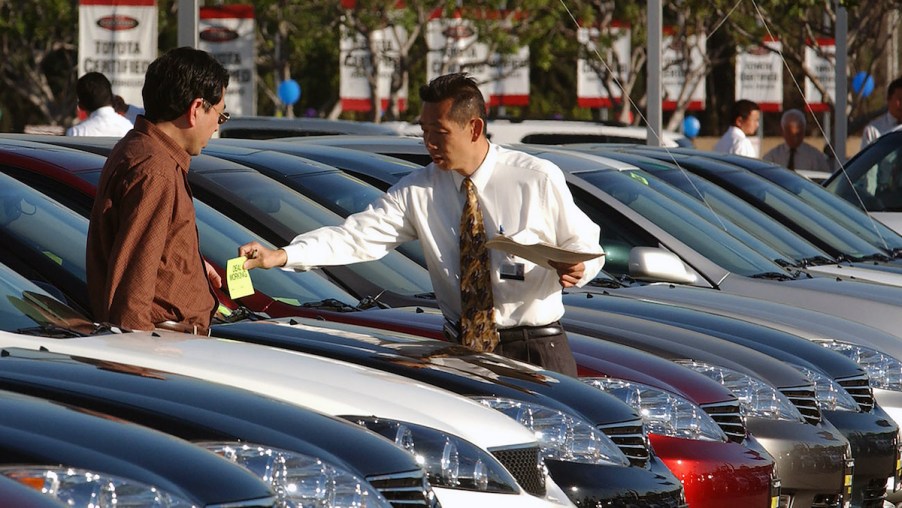
Questions to Expect From Your Car Salesperson When Buying a Car
For many of us, going to a dealership to shop for a new vehicle can be nerve-wracking even if you feel prepared. A car salesperson usually finds you quickly, talking you up and often talking fast. Even if you did your homework on car sales, salespeople know vastly more about the vehicles at their dealership, and it can be an intimidating experience.
Sometimes knowing what you’re looking for and knowing some things about the vehicles you’re interested in isn’t enough. It’s also helpful to know what questions to expect from the salesperson at your local dealership.
Common questions your car salesperson might ask

A recent article from AutoRaptor provides enlightening information. It’s written for car salespeople instead of consumers. The article provides not only insights on good questions for salespeople to ask but also solid advice on how to start conversations. It offers ways to learn more about the customer and what would best suit their needs.
A good salesperson will ask what brought you to their dealership, which is a good way to initiate a conversation. They’ll also ask why you’re considering purchasing a new vehicle. It’s a good question to answer because your response will help them ascertain the type of vehicle that would best fit you.
The salesperson might ask you which vehicles or models you’re interested in and the features you want. Is there anything you don’t like about your current vehicle? They might ask that question to help determine a car that would not only meet your needs but also be satisfying to own.
The salesperson should ask you if you travel with children or dogs, which helps them determine the best interior types. In addition, they might ask about any cargo you often travel with and if you’re on any particular timeline to purchase a car. They may even ask if you’ve been to other dealerships and why you didn’t buy from them.
Follow-up questions from your car salesperson
It’s important to understand that if the car salesperson seems to be asking a lot of questions, it’s because they’re trying to help you find a vehicle to best suit your needs. They should listen to what you tell them and not be in a rush to move on to the next question. The conversation should flow naturally.
The car salesperson will ask follow-up questions. They might ask you to be more specific about your initial answers to get clarification or to help them decide among possible options for you. The more information you provide them, the better your chances of getting a vehicle that’s right for your individual needs.
Instead of feeling defensive or giving your salesperson the bare minimum of information, tell them everything you can about what you need and want. If there are specific features you don’t care for, explain those in as much detail as you can. Providing examples can be especially helpful.
Feel free to ask your salesperson any questions you have too. If they provide helpful answers and are patient, it’s a good sign they are legitimately trying to help you.
The process of buying a car at a dealership
Buying a vehicle is a big investment, but the process doesn’t have to be difficult. As Edmunds points out, the wealth of information available today through technology is a major advantage. You can do a great deal of research online before you even arrive at the dealership.
The exact steps of the process will vary from dealer to dealer. Here’s what you can do before you arrive to streamline the process and increase your chances of finding the right vehicle for you.
Start by researching potential vehicles and features online. While you’re there, you can also get pre-approved for a loan, which will not only save you time but also might increase your chances of getting a good deal. You can also plan your trade-in if you have one, check sale prices, warranties, and locate and test-drive the car.
Once you find a good price and the model you want at the dealer, you’ll review the deal you’re offered and any applicable dealer financing. If the circumstances are right, you’ll close and finalize the deal and arrange delivery if the vehicle isn’t already on the lot.


